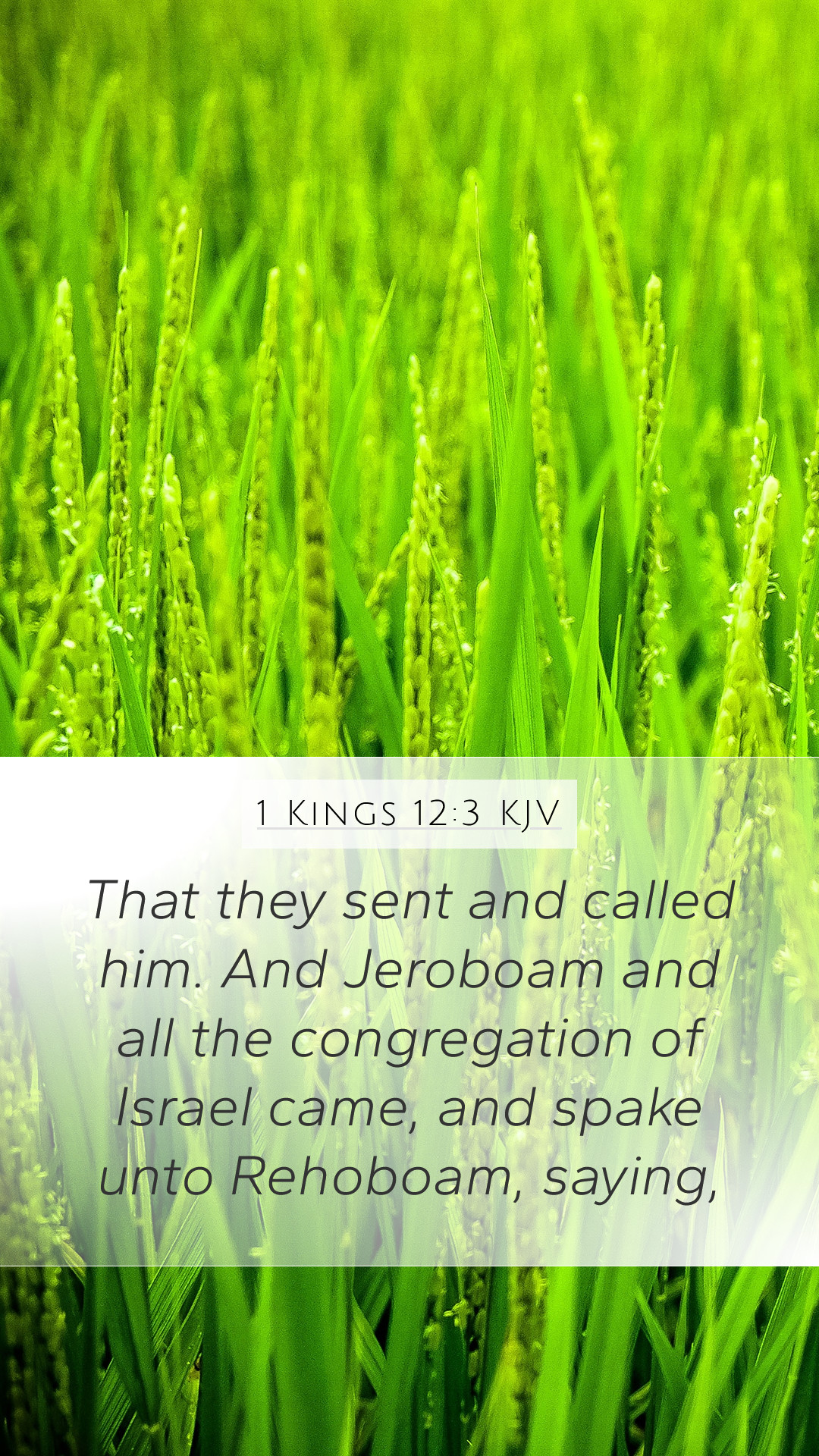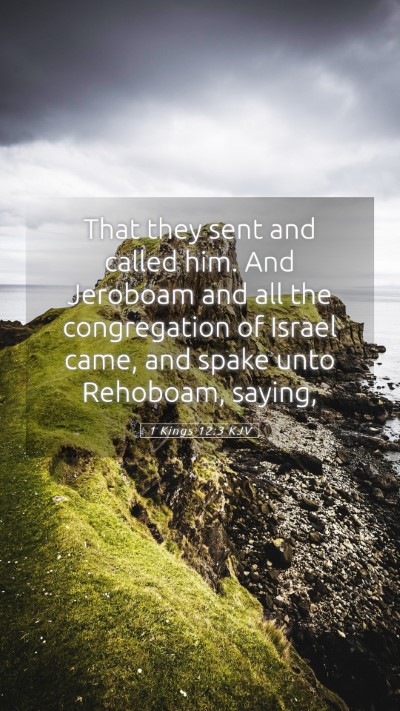Bible Verse Meaning of 1 Kings 12:3
Verse: 1 Kings 12:3 - "And they sent and called him, and Jeroboam and all the congregation of Israel came, and spake unto Rehoboam, saying,"
Overview and Context
This verse takes place in a pivotal moment in the history of Israel, where Jeroboam, after fleeing to Egypt due to his conflict with King Solomon, returns to address the newly crowned King Rehoboam. This request marks a significant turning point leading to the division of the kingdom.
Commentary Insights
-
Matthew Henry: Matthew Henry emphasizes the significance of Jeroboam's return. He points out that the people sought to address their grievances directly with Rehoboam, reflecting their desire for better treatment and relief from the burdens imposed by Solomon. The narrative highlights the people's initiative in voicing their discontent and their hope for a more benevolent governance.
-
Albert Barnes: Barnes adds that this gathering signifies the representatives of the ten northern tribes seeking acknowledgment of their plight. The mention of "all the congregation of Israel" indicates a collective effort, suggesting that the grievances were not isolated but widely felt across the nation. This sets the stage for the political dynamics that would follow.
-
Adam Clarke: Clarke notes the importance of the phrase "and spake unto Rehoboam." The direct communication between the leaders and the king is crucial, as it illustrates the foundational role of dialogue in leadership. Clarke interprets this as a call for Rehoboam to heed the voices of the people, underscoring the principle that a ruler's legitimacy is tied to their responsiveness to the governed.
Interpretive Themes
The themes emerging from 1 Kings 12:3 resonate through several dimensions of biblical interpretation:
- Leadership and Responsibility: This verse underscores the expectation that leaders listen to their constituents, a principle still relevant in modern governance and biblical study insights.
- Unity and Division: The gathering of the tribes indicates unity in a common cause, which contrasts sharply with the division that will result from Rehoboam's response, framing the larger narrative of Israel's fracturing.
- Divine Sovereignty: The events leading to this moment are essential in understanding God’s overarching plan for Israel. This text invites theological reflection on how human decisions operate within divine providence.
Application to Daily Life
This passage prompts readers to reflect on their roles within their communities:
- How can individuals advocate for themselves or their community leaders effectively?
- In what ways do we engage in listening to those in positions of authority?
- What lessons can we draw about the consequences of leadership decisions, particularly in situations of conflict?
Cross References
- 1 Kings 11:26-40: The background of Jeroboam's rise and conflict with Solomon.
- 2 Chronicles 10:1-19: A parallel account that provides further detail on Rehoboam's decision-making.
- Ezekiel 34:1-10: A prophetic critique of poor leadership which can be reflective of Rehoboam's future actions.
Conclusion
In summary, 1 Kings 12:3 serves as a critical juncture in the narrative of Israel, encapsulating themes of leadership, communal grievance, and the fragility of unity. The commentaries from Henry, Barnes, and Clarke enrich our understanding of the political and spiritual implications of this verse. As such, it invites readers to apply its lessons in their personal pursuits of leadership and advocacy.


